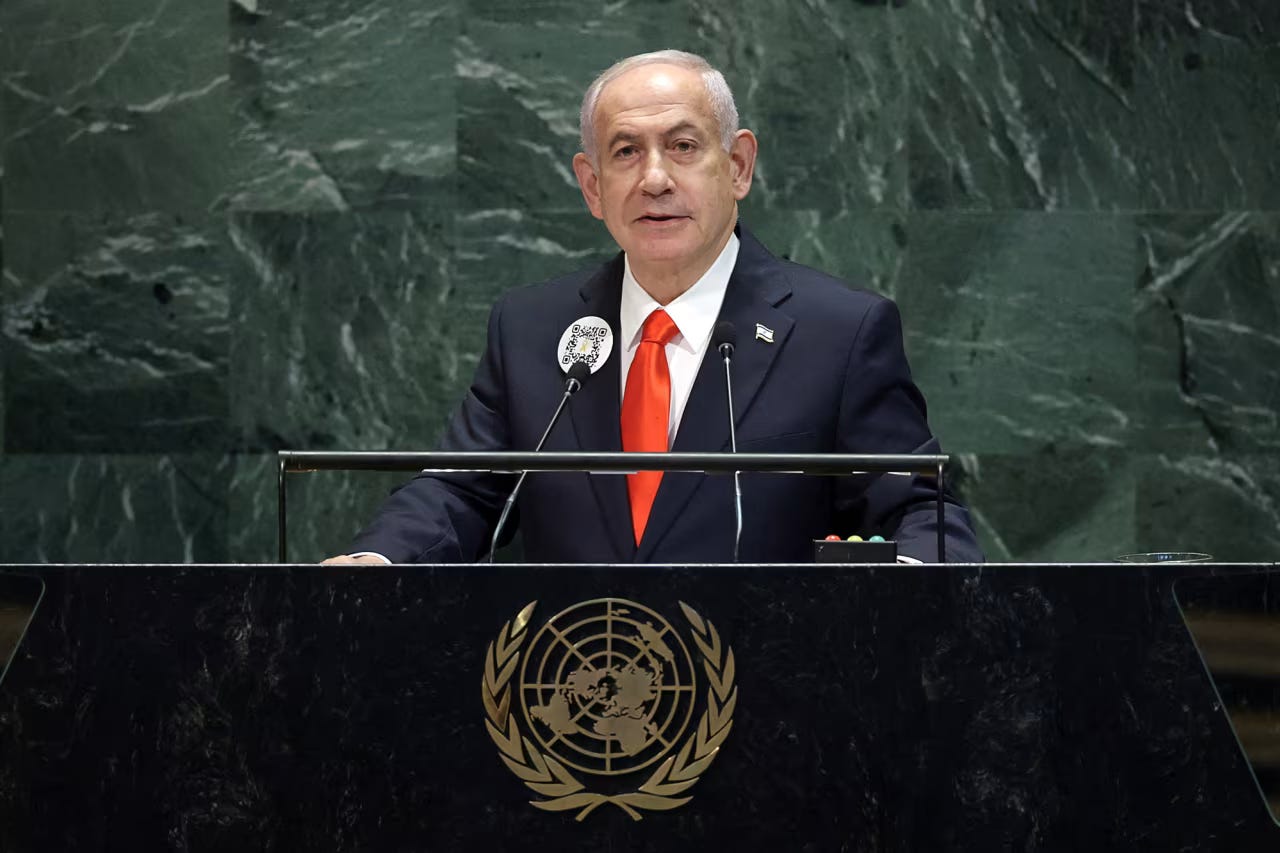Netanyahu's UN Bombshell: Dismantling the Two-State Solution
A deep dive into the Prime Minister's rejection of Palestinian statehood, the PA's structural failures, and viable alternatives for lasting peace in the Middle East
In a blistering address to the United Nations General Assembly on September 26, 2025, Israeli Prime Minister Benjamin Netanyahu delivered a no-holds-barred defense of Israel’s actions against Hamas, while dismantling the long-touted two-state solution as “sheer madness.” Accusing world leaders of appeasing terrorism through hypocrisy and bias, Netanyahu zeroed in on the Palestinian Authority (PA)’s systemic failures: no elections in 20 years, “pay-to-slay” incentives for terrorists, and educational indoctrination that glorifies violence. He equated post-October 7 statehood for Palestinians to handing al-Qaeda a foothold near New York after 9/11. Beyond geopolitics, his speech spotlights governance breakdowns, echoing compliance and structural integrity challenges in conflicted systems worldwide.
Here are the key takeaways from Netanyahu’s remarks, framed as critical governance questions:
Rejectionism at the Core: Netanyahu spotlighted the PA’s history of rejecting peace deals that demand recognition of Israel, transforming areas like Gaza into terror hubs. This prompts scrutiny of risk assessment approval in defective frameworks—similar to mandating board-level review under governance codes to block entrenched conflicts.
Unaccountable Leadership: He lambasted the PA’s deep-seated corruption, lack of elections, and policies that celebrate attacks on Jews and Christians. This invites questions about the true principal behind recruiting oversight positions, stressing neutral processes to curb bias reinforcement.
Liability in Structural Flaws: Netanyahu noted how PA rule has driven demographic declines, such as Bethlehem’s Christian community shrinking from 80% to under 20%. When harm stems from misaligned authority—like interest conflicts—what protections apply, from liability insurance for disputes and arbitration to coverage persisting after tenure for related damages?
Maintaining Independence: He condemned the PA’s fusion of administration with hate-mongering, undermining duty separations. This demands assurance that supervisory roles do not encroach on executive duties, preserving clear accountability lines against institutional snarls.
Employment and Accountability Details: Netanyahu criticized the PA’s unfulfilled reform vows, breeding intolerance. This underscores employment specifics: time-bound positions, decision-making demands, rights to highlight evaluation obstacles, duties to correct identified risks, and rights to legal dispute insurances, all in line with established protocols.
Netanyahu wrapped up with optimism for a revamped Middle East, buoyed by Israel’s triumphs—potentially broadening the Abraham Accords and building alliances with progressive states. His PA takedown, however, underscores a harsh truth: Structural decay blocks peace. This begs the question: Must the Palestinian Authority anchor a two-state solution, or could alternatives sidestep its deep-seated woes? Crucially, any replacement must stand as a bastion of constitutional independence, not a facade for activists weaponizing justice against rivals—where dissent becomes “radical,” opposition “illegitimate,” and critique “treason.” That’s no route to progress. Path forward could include UN-led reforms via confederation models, as international bodies like the United Nations appear to be the only viable path for overseeing governance reforms that bypass the PA’s entrenched issues. Ultimately, while the PA isn’t essential, successors must champion true pluralism and safeguard free expression to escape authoritarian traps. As UN debates simmer, Netanyahu’s call urges leaders to tackle these realities and forge fresh avenues
.

